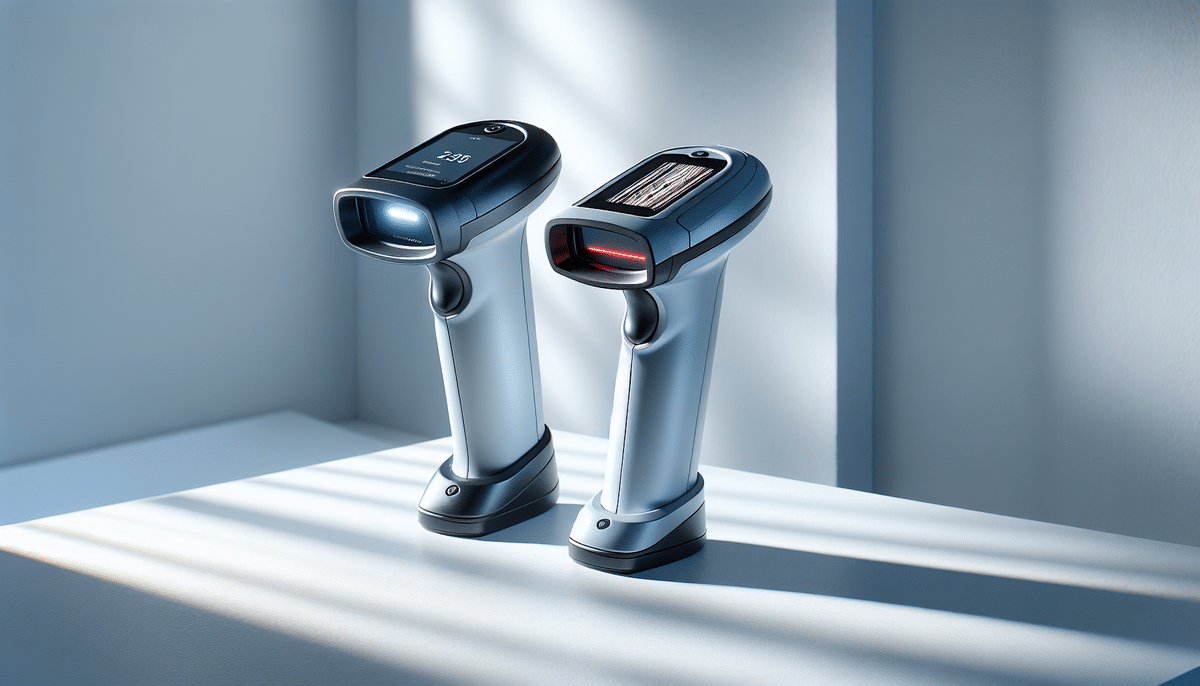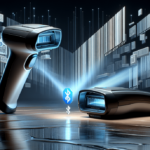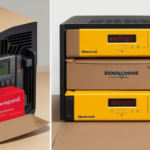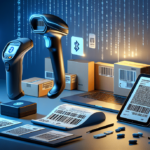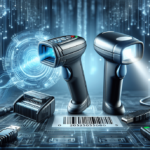Socket Mobile S700 vs Symbol LS2208 by Zebra: An In-Depth Comparison
In today’s competitive market, selecting the right barcode scanner is crucial for optimizing operations and enhancing productivity. Two prominent options are the Socket Mobile S700 and the Symbol LS2208 by Zebra. Both are renowned for their reliability and performance, but which one best suits your business needs? This comprehensive comparison delves into the features, performance, and overall value of each scanner to help you make an informed decision.
Introduction to Socket Mobile S700 and Zebra Symbol LS2208 Barcode Scanners
The Socket Mobile S700 is a versatile handheld scanner capable of reading standard linear barcodes, stacked codes, and 2D barcodes. It offers Bluetooth connectivity with a range of up to 330 feet (100 meters), providing flexibility in various operational environments. In contrast, the Symbol LS2208 by Zebra is a corded USB scanner designed primarily for reading standard linear barcodes. Its reputation for durability and reliability makes it a favorite in sectors like retail and healthcare.
While the S700 boasts advanced barcode reading capabilities and wireless connectivity, it comes at a higher price point compared to the LS2208. The choice between these scanners hinges on your specific operational requirements and budget constraints.
Key Features of Socket Mobile S700 Barcode Scanner
The Socket Mobile S700 stands out with its ability to read a wide array of barcode types, including 2D barcodes commonly used in modern retail and logistics. Key features include:
- Versatile Scanning: Capable of reading linear, stacked, and 2D barcodes.
- Wireless Connectivity: Utilizes Bluetooth 5.0 for seamless integration with mobile devices.
- Extended Battery Life: Up to 16 hours on a single charge, ensuring uninterrupted operations.
- Ergonomic Design: Lightweight and comfortable for prolonged use.
- Durability: Resistant to drops from up to 4 feet onto concrete surfaces.
According to a recent industry report, the demand for versatile and wireless scanners like the S700 is on the rise, particularly in dynamic environments such as warehouses and large retail spaces.
Additionally, Forbes Technology Council highlights the growing importance of wireless scanners in improving operational efficiency and reducing manual errors.
Key Features of Zebra Symbol LS2208 Barcode Scanner
The Symbol LS2208 is renowned for its robustness and efficiency in high-volume scanning environments. Its primary features include:
- Durable Construction: Can withstand drops from up to 5 feet (1.5 meters) and has an IP42 seal rating for dust and water resistance.
- Rapid Scanning Speed: Captures and decodes barcodes in milliseconds, enhancing transaction efficiency.
- Plug-and-Play: Easy USB connection without the need for additional software or drivers.
- Ergonomic Grip: Designed for comfortable handling during extended use.
- Wide Compatibility: Suitable for various industries, including retail, healthcare, manufacturing, and logistics.
Industry analysis from Zebra Technologies highlights the LS2208's continued popularity due to its reliability and consistent performance in demanding settings.
Furthermore, a report by CRN emphasizes the LS2208's dominance in sectors requiring high durability and fast scanning capabilities.
Comparative Analysis of Socket Mobile S700 and Zebra Symbol LS2208
To provide a clearer perspective, let's compare the Socket Mobile S700 and Symbol LS2208 across several key dimensions:
Performance Comparison
The Socket Mobile S700 excels in versatility, capable of reading a broader range of barcode types, including 2D codes. This makes it suitable for businesses that require scanning diverse barcode formats. On the other hand, the Symbol LS2208 is optimized for speed, making it ideal for environments with a high volume of transactions where rapid scanning is essential.
According to Gartner's 2024 Report on Barcode Scanners, scanners with faster decoding speeds like the LS2208 significantly reduce transaction times in retail settings.
Ergonomics and Design Comparison
The S700 features a lightweight and ergonomic design, reducing user fatigue during prolonged use. Its compact form factor is advantageous for businesses where mobility is crucial. Conversely, the LS2208's robust build is tailored for environments where durability is paramount, such as warehouses and manufacturing floors.
Connectivity and Ease of Use Comparison
Connectivity options differ significantly between the two scanners. The S700's Bluetooth connectivity offers greater flexibility, allowing it to pair with multiple mobile devices without the constraints of cables. This is particularly beneficial for roles that require mobility, such as inventory management and field sales.
In contrast, the LS2208's USB connection ensures a stable and reliable link to connected devices, minimizing the risk of connection drops in high-demand environments.
Price Comparison
While the S700 is priced slightly higher than the LS2208, its advanced features and wireless capabilities may offer greater long-term value for businesses that benefit from enhanced flexibility and barcode versatility.
Supply Chain Brain suggests that the initial investment in wireless scanners like the S700 can lead to increased efficiency and productivity, offsetting the higher upfront cost over time.
Additional Considerations
Both scanners are compatible with a range of point-of-sale (POS) systems and software platforms. However, it is imperative to verify compatibility with your specific systems prior to purchase. Additionally, both models offer accessories such as stands and holsters to enhance usability, though these accessories may incur additional costs.
Future scalability is another factor to consider. The wireless capabilities of the S700 may provide more flexibility as your business grows and diversifies its operations.
Pros and Cons of Socket Mobile S700 Barcode Scanner
- Pros:
- Versatile barcode reading capabilities (1D, 2D, stacked)
- Long battery life (up to 16 hours)
- Ergonomic and lightweight design
- Wireless Bluetooth connectivity
- Durable construction
- Cons:
- Higher price point compared to LS2208
- Bluetooth connectivity can be susceptible to interference in crowded wireless environments
The Socket Mobile S700 offers significant advantages in flexibility and user comfort, making it ideal for dynamic work environments. However, businesses with stringent budget constraints or those operating in areas with high wireless interference may need to consider these factors.
Pros and Cons of Zebra Symbol LS2208 Barcode Scanner
- Pros:
- Durable and rugged construction
- High-speed scanning capability
- Reliable and stable corded USB connection
- Plug-and-play functionality
- Cons:
- Limited to standard linear barcode types
- Lacks wireless connectivity
The Symbol LS2208 is a dependable choice for environments that demand robustness and speed. Its simplicity and reliability make it a cost-effective solution for businesses focused on high-volume, linear barcode scanning.
Which Barcode Scanner is Right for You? A Buying Guide
Choosing between the Socket Mobile S700 and the Symbol LS2208 involves assessing your business's specific needs:
- Barcode Variety: If your operations involve diverse barcode types, including 2D codes, the S700 offers the necessary versatility.
- Mobility: For roles requiring movement and flexibility, the wireless capabilities of the S700 are advantageous.
- Durability: In environments prone to physical impact, the rugged build of the LS2208 provides reliability.
- Scanning Volume: High transaction environments benefit from the fast scanning speeds of the LS2208.
- Budget: While the S700 may require a higher initial investment, its features may offer greater long-term value for dynamic operations.
Additionally, consider the integration capabilities with your existing POS systems and whether you require supplementary accessories like stands or holsters. Evaluating these factors will guide you to the scanner that aligns best with your operational requirements and financial considerations.
Conclusion: Which Barcode Scanner Should You Choose?
Both the Socket Mobile S700 and the Symbol LS2208 are exemplary barcode scanners, each excelling in different areas. The S700 is ideal for businesses seeking versatility and wireless functionality, enhancing mobility and accommodating a wide range of barcode formats. Conversely, the LS2208 is perfectly suited for high-volume environments where speed, durability, and reliability are paramount.
Ultimately, the decision should be based on a thorough assessment of your business needs, operational environment, and budget. Ensuring compatibility with your existing systems and considering future scalability will also play a crucial role in selecting the optimal barcode scanner for your organization.
User Reviews: What Customers Are Saying About These Barcode Scanners
Feedback from users highlights the strengths and areas for improvement for both scanners:
- Socket Mobile S700: Users praise its versatility and ease of use, particularly appreciating the wireless connectivity and ergonomic design. However, some have reported occasional Bluetooth connectivity issues in environments with high wireless traffic.
- Symbol LS2208: Customers commend its durability and rapid scanning capabilities, noting its reliability in high-demand settings. A common critique is the limitation to linear barcodes, which restricts its use in certain applications.
Beyond these models, other scanners like the Honeywell Voyager 1202g are also well-received for their long battery life and ability to scan barcodes from a distance. Similarly, the Zebra DS2208 is favored for its fast scanning speed and user-friendly interface.
Customer support is another vital aspect influencing user satisfaction. Reviewers emphasize the importance of responsive and helpful customer service, which can significantly enhance the overall ownership experience. When selecting a barcode scanner, it's advisable to consider the manufacturer's reputation for customer support alongside product features and performance.















